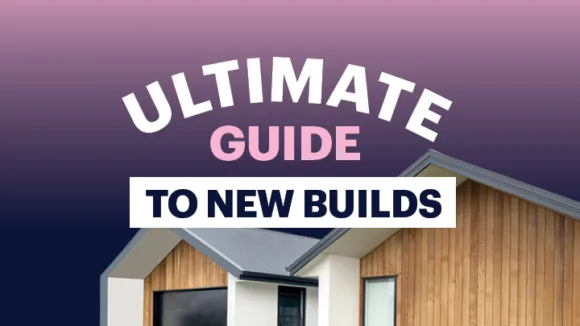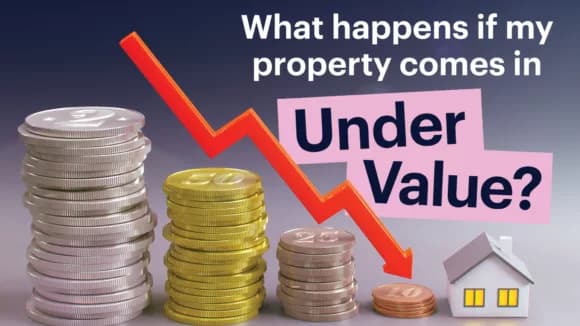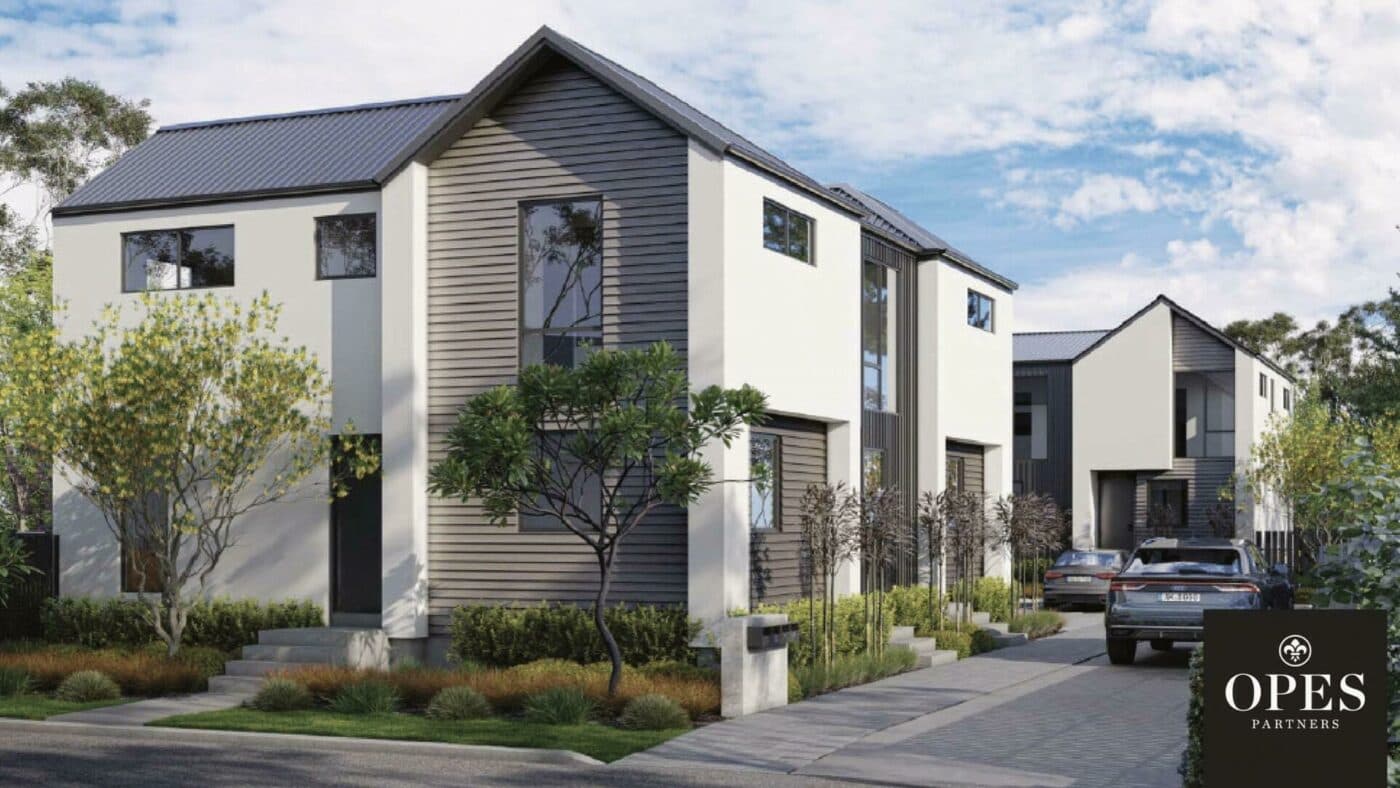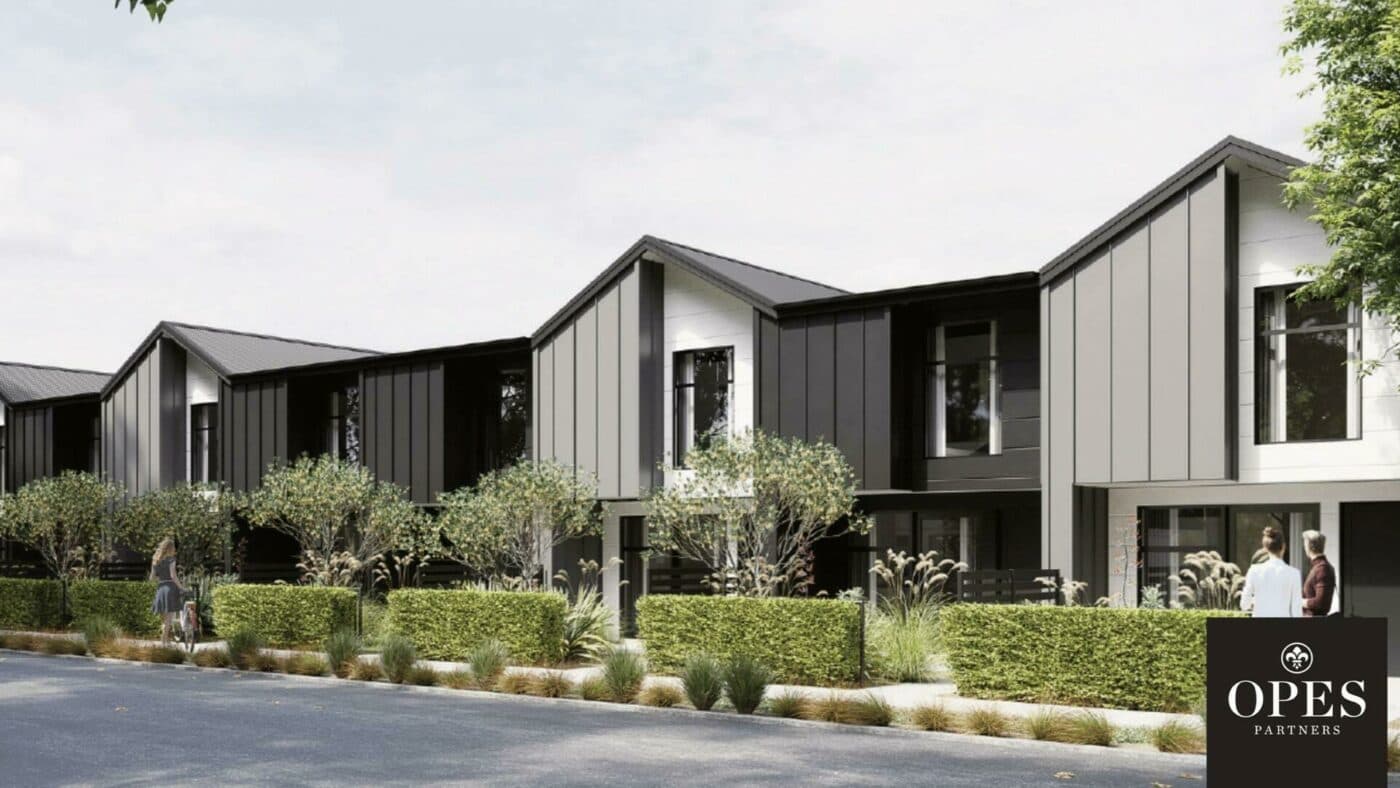
New Builds
New builds - The ultimate guide for every property investor
Explore the essentials of investing in new builds. Our guide covers key strategies, benefits, and tips to navigate the market and maximise your investment.
New Builds
11 min read

Author: Laine Moger
Journalist and Property Educator, holds a Bachelor of Communication (Honours) from Massey University.
Reviewed by: Ed McKnight
Resident Economist, with a GradDipEcon and over five years at Opes Partners, is a trusted contributor to NZ Property Investor, Informed Investor, Stuff, Business Desk, and OneRoof.
One of the biggest concerns for property investors purchasing New Builds is: “What happens if you sign up to buy a property for a certain amount, but the value of the property drops while the property is being built?”
This scenario doesn’t often play out, but it can happen. And as an investor you need to know what it means for you (and how to handle it).
No, this doesn’t mean that you’ve made a bad investment decision. But you need to know what could go wrong so you’re not blindsided when the (un)expected happens.
In this article you’ll learn why your property might come in “under value”, and ways to manage this practically.
If you have any questions or thoughts, please leave them in the comments section below.
Property investors often talk about the risk of a New Build coming in “under value”. This happens when an investor signs up to buy a property for a price e.g. $800,000.
But then, while the property is being built, the value of that property falls. The investor then goes and gets a registered valuer to say what the property is worth (which is needed for the bank).
If the registered valuer says the property is now worth $750,000, it has come in “under value”. Because the registered valuation ($750k) is lower than the purchase price ($800k).
New Build purchases are different to buying an existing property. Why? Because you’re buying an off-the-plan property that has yet to be built.
Building a property takes time. So there is space between committing to purchase a property (going unconditional) and actually paying for it (settlement).
And there is a chance the market will move within that time.
There can be a lot of positives to buying this sort of investment – one is that the value of the property tends to rise during construction.
This is because:
a) the market may increase in value, and
b) a property that has been fully built is worth more than when it was just lines on a piece of paper.
That tends to benefit investors because you “lock in” the price at the time you sign, and then by the time you settle and pay for the property its value may have increased.
But, of course, the market can move both ways. It can go up or down.
When the market goes up, you’ve made instant equity on your new purchase and you’ve only owned it for a day. Great.
But when the market goes down it can become a bit stressful for property investors.
This is when self-doubt can creep in: “Have I made the right decision?”, “can I afford this?” or even “should I now sell the property?”
There are also practicalities around your finance you’ll have to negotiate too. But, don’t worry, we’re about to cover these, so you’ll know exactly what your options are.
Secure a comfortable retirement with 3 easy steps
Book your free sessionThe most significant thing you need to look out for is how you pay for the property.
The big issue when your property falls in value is that the bank will often not lend you as much money as you thought.
Why’s that the case?
It all comes down to the loan-to-value ratio restrictions (LVRs). These requirements from the Reserve Bank say that banks can only lend up to 80% of the current value of a property.
So, what happens if the value of your New Build changes during construction?
If the value of your property goes up (above the purchase price), there’s no impact; the bank will lend you the lesser of the two options.
For example, if your property was bought for $800k, and it’s now worth $850k – the bank will still lend you $800k.
But if your property has gone down, the bank will now only lend you 80% of the new value. Let’s get into a case study to make this really clear.
Let’s say you signed up to buy a $1 million property in Auckland. This was 18 months ago. Because it’s a New Build you only need a 20% deposit ($200k) and you’ve got the money set aside.
But now the property has been built you need to get a registered valuation in order to get your mortgage approved.
But, instead of $1 million (what you need to pay the property developer), the valuer says it is only worth $950k.
Initially the bank was going to give you $800k, which is 80% of the property’s original price ($1 million).
But now the bank is only going to lend you up to 80% of $950k, because the value has gone down. That means they’ll only lend you $760k.
So originally the way you’d pay for the property is your $200k deposit + $800k from the bank.
But now you need to find more money. You still need to pay the developer $1 million, but now you’ve only got $960k: your $200k deposit + $760k from the bank.
So, you now need to find an extra $40k to pay the developer.
How do you do that?

If your property has come in under value and you find yourself short (now the bank won’t lend you as much) there are ways to get the extra money.
If you still have some usable equity within your own home, you can use this to fund the difference.
But obviously, you need to have either:
a) your own home (or an investment property) to lend against, or
b) spare equity that you haven’t already maxed out already trying to get the deposit
This might not be an option for all investors, particularly for those just starting out.
You can use our equity calculator to see how much usable equity you might have available.
Otherwise, talk to your mortgage broker to see if this is possible.
Not all banks are the same. Some will say the equivalent of: “Sweet as, that’s all good (that your property is under value), we’re still going to lend to you at the original purchase price”.
If this happens you don’t need to find extra money because you’re still able to borrow the amount you thought you could.
So if your bank won’t lend you the amount you originally thought, there are banks which will accept the original purchase price (in some situations).
For instance, our understanding is that TSB will accept the original purchase price as long as you have had a real estate agent within the transaction.
In this example speak to your mortgage broker about this option to see which bank is the right option for you.
A good rule of thumb in property investment is that banks will lend up to 80% of the purchase price for a New Build.
However, there is in fact no government restriction about how much banks can lend against New Build investment properties.
So some banks will lend up to 90% against an investment property. This is what’s known as a “high-LVR loan.”
If we continue from the above case study, if a bank were to lend $800k against a property that is worth $950k, the loan would make up 84% of the property’s value.
The good news in this case is that you still get the money from the bank you wanted.
But there are drawbacks for using a higher LVR loan.
The main ones are:
While this option is often the simplest, it’s not without its drawbacks.

If you can’t get the money from a bank, your other option is to use a non-bank lender.
They also have the option to lend above 80%, but like the above option, you will:
Again, while this option can cost more in terms of cash flow, it is a good one to consider, especially if you can’t make up the money in some other way.
Lastly, there is always the option to use any cash you have to bridge the difference.
For instance, you may be able to liquidate some of your assets, for example any shares you have. Or perhaps you have some savings tucked away for such an occasion.
Finally, your other option is to get a new valuation. Like anyone, two registered valuers can put different prices on a property.
For example, we were recently working with two investors. They purchased very similar properties side by side, and they both had to get valuations.
The first valuer (Valuer A) said the first property was worth 2% less than what our investor had signed up to pay. This is very good in a market that had fallen 18% during the build time.
The second valuer (Valuer B) said the second property was worth 17% less than what our next investor has signed up to pay. This is roughly on track with the wider property market, but is going to make it tougher to get finance for this second investor.
So in this case, if your valuation comes out really low, you can pay to have another one done. This typically costs around $700 to $1,000.
While this is an additional cost it could save an investor a lot of money if they then don’t have to pay the bank a higher interest rate.
It’s common for investors to think: “Oh crap, my property has come in under value and I've lost $50k. What a dud investment … I’d better sell it and find something else.”
We get it. It can be easy to jump to a conclusion that the property is bad, and seek to sell (at least at first).
But now, what if we were to ask you this: “If the value of the property went up by the same amount ($50k), would you have sold that property?”
The answer is probably “no” (well it really should be) so why are you thinking about selling?
And the reason you wouldn’t sell is that you didn’t buy the property to make a quick buck. You probably bought it for the long term.
So if that hasn’t changed, it’s often a good idea to continue holding that property; that’s probably what you bought it for.
The thing is, if your property comes in under value, you haven’t actually felt the loss. The loss only exists on paper. Just the same as any gain … it’s only a gain on paper.
To explain what we mean by this let’s go back to our earlier example of the $1 million property dropping to $950k.
If you paid for the property (settled) and then decided to sell you’ve lost $50k because you paid the developer $1m and sold for $950k.
And on top of that, you probably lost another $50k once you’ve paid your real estate agent fee and lawyer’s bill.
So by selling the property you “crystallize those losses” and turn what was a paper loss into a real one.
But what if you decided to hold that property for the next 15 years? Chances are the market will recover and you will make back that initial loss and go on to make significant capital gains.
Then, when you decide to sell your property, you’ll likely make hundreds of thousands of dollars.
The bottom line here is: If the market drops, the best thing you can do is hold your nerve.
Property is a long-term investment game and if you panic-sell you risk crystallizing your losses, probably beyond what your property may have fallen in value.
So, keep that in the forefront of your mind if it comes in less than what you expected it to.
If you’ve done your homework right, and you’ve bought a good investment, it’s still a good investment even if it is slightly less than what was expected.
Remember, you’re buying to hold onto that property for 15 years. It doesn’t matter what the market is doing now, or next year, or even the year after.
It’s important to speak to a professional for advice on your situation, should this happen to you.
If you are working with us here at Opes, that person will be your Property Partner.
However, even if you’re not working with us, make sure you do work with a specialised property investor company so if things do go wrong you’ve got someone to chat to for advice.
Journalist and Property Educator, holds a Bachelor of Communication (Honours) from Massey University.
Laine Moger, a seasoned Journalist and Property Educator holds a Bachelor of Communications (Honours) from Massey University and a Diploma of Journalism from the London School of Journalism. She has been an integral part of the Opes team for four years, crafting content for our website, newsletter, and external columns, as well as contributing to Informed Investor and NZ Property Investor.
This article is for your general information. It’s not financial advice. See here for details about our Financial Advice Provider Disclosure. So Opes isn’t telling you what to do with your own money.
We’ve made every effort to make sure the information is accurate. But we occasionally get the odd fact wrong. Make sure you do your own research or talk to a financial adviser before making any investment decisions.
You might like to use us or another financial adviser